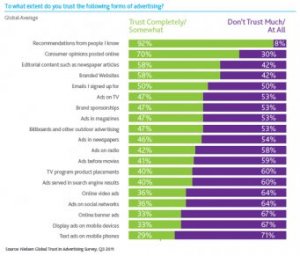- Apr 20, 2009
- 702
- 716
- Awards
- 8
- First Name
- Ryan
The article itself was pretty thin, but there are some great takeaways. Here is a link to the article (the audio version of the story is also available here if that is more appealing to you.)
Here are a few of mine:
What do you think?
(I'm always happy to take a call from a fellow DealerRefresher. If you'd like to discuss this in more detail please don't hesitate to call or PM me.)
Here are a few of mine:
- This issue is clearly on the consumer's radar. Review collection and marketing is no longer the Wild Wild West Butch Cassidy, time to hang up your sixshooter! Consumer awareness generally ushers in federal enforcement of acceptable standards. I know I'm preaching to the choir here on Refresh, but some dealers are still engaged with companies that actively post on behalf of a consumer and that has to stop. Dealers should also have policies in place for their employees regarding reviews. All employees need to be aware of the FTC fines assessed for faking or incentivizing review content under the False Advertising Regulations.
- Return to the ABC's: Authenticity, Believability, Credibility... 5 stars and 5 words isn't an authentic, believable or credible review! According to NPR, and I think this is reporting the obvious, consumers want a story. Your "ask" for a review should include a soft coaching to draw out the details of the experience. "HIGHLY RECOMMEND!!!! Jimmy was AWESOME and the best sales person in the UNIVERSE!!!!"= NOISE
- Don't put all your eggs in one basket: Remember Aug of 2011? The uproar was Google no longer being able to aggregate review content from review sites into the Places page and snippets. Feels like ancient history due to all of the other significant changes in the last 12 months, doesn't it? Fast Forward to Aug 2012 and an aggressive algorithm wipes out tons of Google review content overnight. Both of these events are chronicled here with much debate and discussion, but the lesson is the same, just like the stock market, a diversified approach to review collection is SMART. NPR offers one more convincing argument for a diversified approach. They are encouraging consumers to consider the aggregate of reviews and not rely too much on a single source. In simple terms, loading up one site and ignoring the rest that index for your brand is a bad plan. You need to know what is being said and where so that you can actively request reviews on specific properties. It is also worth mentioning that the logical extension of this advice is that the consumer will begin to "consider the source." The differences between Expedia's and TripAdvisor's collection policy is outlined here. I believe we aren't far from true review sites making their collection policies extremely visible in order to distinguish themselves and establish credibility with the consumer.
What do you think?
(I'm always happy to take a call from a fellow DealerRefresher. If you'd like to discuss this in more detail please don't hesitate to call or PM me.)











 .
. 
